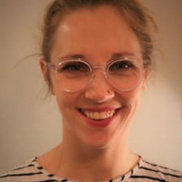Overview
Increasing research shows that good air quality influences everything from workplace productivity to classroom behaviour, cognitive function to patient recovery. As organisations seek to improve wellbeing and building performance, it falls on workplace and facilities management (WFM) to devise and implement the strategies to optimise air quality. What does a healthy set up look like? How can key stakeholders be convinced of the business case for good air quality? Plus, how does optimising air quality relate to other initiatives, including digital innovation and team collaboration initiatives?
Join IWFM and Equans for a short presentation on why air quality matters for people’s health, followed by an expert panel discussion on the above queries and much more, including:
-
Why good air quality matters: providing clarity on the impact and WFM’s role
-
How WFM enables good air quality, what good looks like and the business case
-
How we can integrate technology, change perceptions around data and how it can provide tangible outputs in air quality optimisation.
-
The need to collaborate and share insights to shape best practices
If you’re interested in exploring the topic in advance of the webinar, then please read our Roundtable report with Dyson here >
Joining us on the panel are:




